Studies
The Department of Physics at Paderborn University offers a wide range of degree courses with two specialist Bachelor's and three Master's degree courses as well as the opportunity to study to become a teacher for primary, secondary and grammar schools. This includes general physics courses as well as cross-departmental and cross-faculty courses such as materials science and optoelectronics and photonics. The range of courses is supplemented by the option of choosing physics as a minor subject in another degree course.
Bachelor degree programmes
You can enrol on our Bachelor's degree programmes with a general or relevant subject-related higher education entrance qualification; you can find the other admission requirements here. Our Bachelor's degree programmes can be completed entirely in German (with the exception of the language courses).
Bachelor in Physics
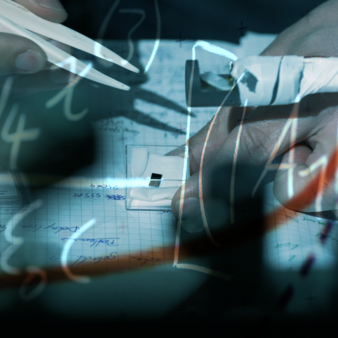
On the Bachelor's degree course in Physics, you will build up in-depth knowledge of physics and acquire the ability to systematically analyse and solve physical and interdisciplinary problems. The programme is not limited to physics - mathematics and technical English or French are also part of the curriculum. Advanced skills such as time management and teamwork are also taught here.
Bachelor in Materials Science
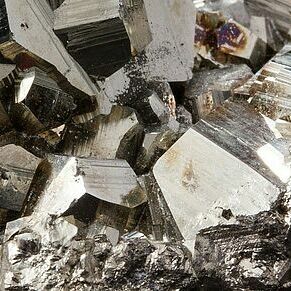
On the Bachelor's degree programme in Materials Science, you will focus on the properties of matter, the development of new materials and the analysis and improvement of materials. This interdisciplinary degree programme is a cooperation between physics, chemistry and mechanical engineering, so that you will become a real all-rounder in materials research with a broad range of application knowledge!
Master's programmes
Typically, a Bachelor's degree is followed by a Master's programme. With a few exceptions , a corresponding degree is also a prerequisite for admission to a Master's degree programme. The Master's degree programme in Physics can be completed in German or English, while the other two Master's degree programmes can only be completed in English.
Master Physics
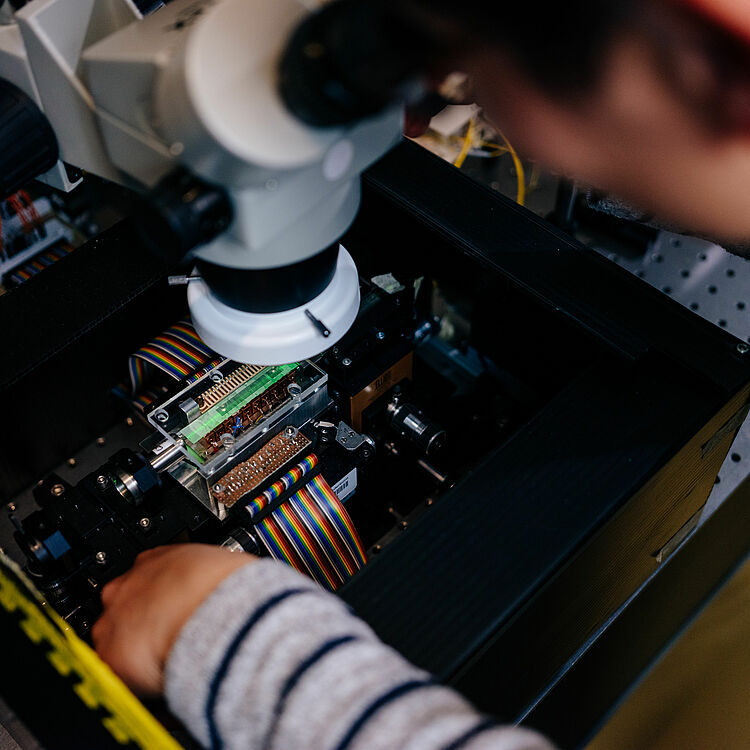
On the Master's degree programme in Physics, you will deepen your knowledge from your Bachelor's degree and acquire the ability to work on cutting-edge research and familiarise yourself with any physics department. With a very good or good degree, you will have the opportunity to do a doctorate.
Master Optoelectronics and Photonics
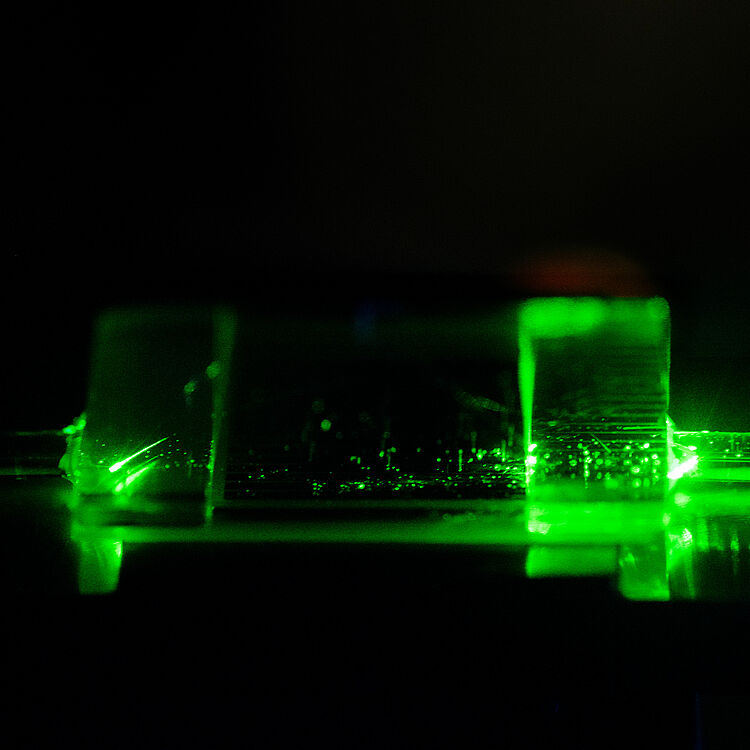
On the Master's degree programme in Optoelectronics and Photonics - a cooperation between the Departments of Physics and Electrical Engineering - you will acquire in-depth knowledge in the promising fields of optoelectronics and photonics. You will develop the ability to further develop technologies in these fields and be prepared for the international labour market.
Master Materials Science
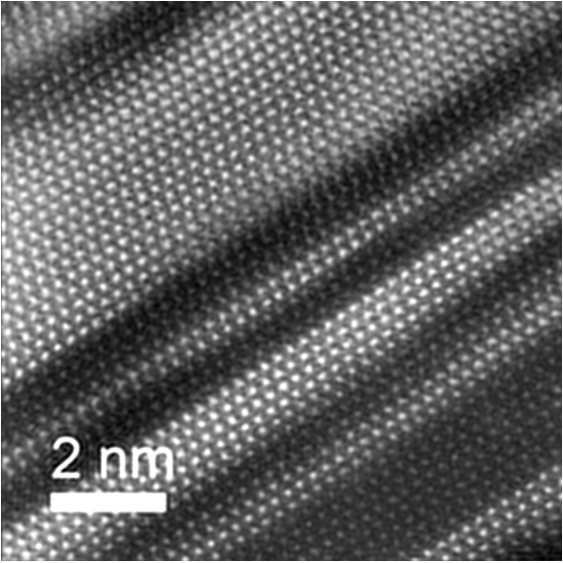
In the Master's in Materials Science, you will deepen your knowledge of the properties, analysis and development of materials and substances. This is done from an interdisciplinary perspective - you will attend courses in the fields of physics, chemistry, materials science and process engineering.
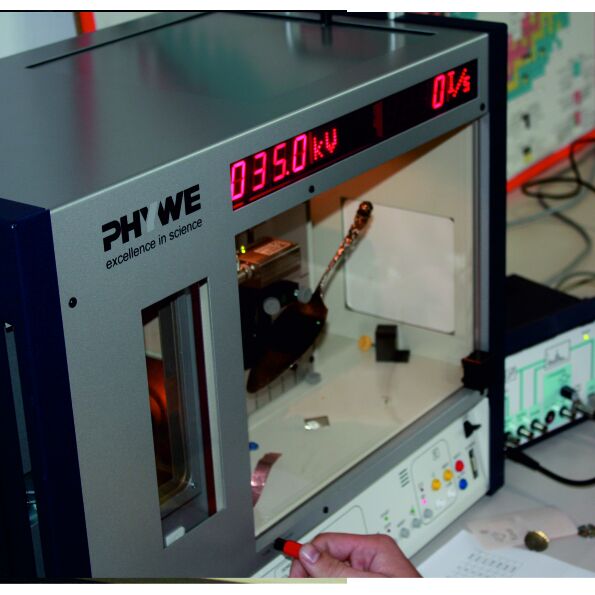
Teaching Physics
In the teacher training programme - divided into a Bachelor's and a Master's degree - you will learn everything you need to teach physics at a school. In addition to physics, you will also study a second subject area and educational sciences. The Department of Physics offers teacher training programmes specialising in physics for grammar schools, vocational colleges , secondary schools and comprehensive schools.
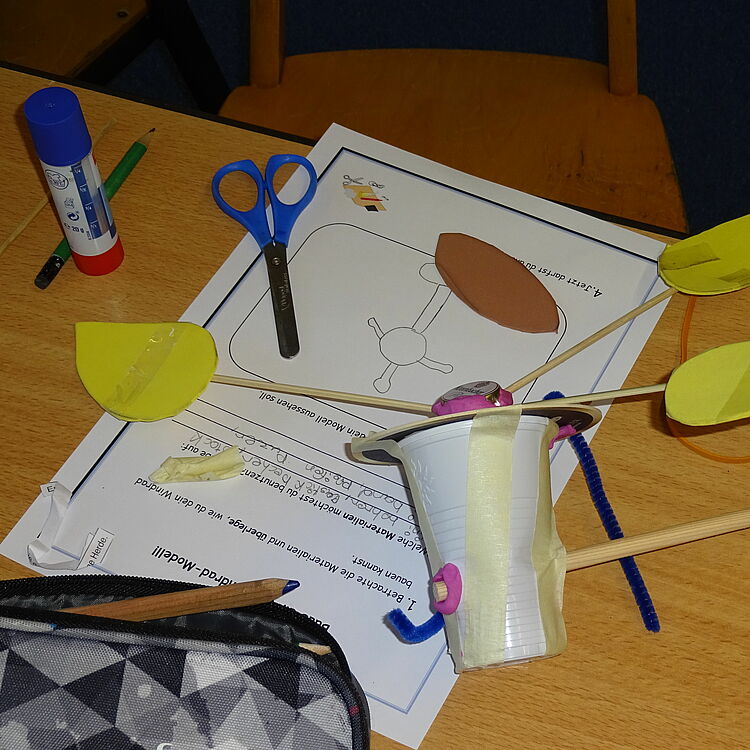
Teacher training programme with a specialisation in natural and social sciences (subject teaching)
In the teacher training programme specialising in natural and social sciences, you will learn everything you need to know to teach science at primary schools. The degree programme is divided into a Bachelor's and a Master's degree. In addition to your chosen specialisation, you will also study basic linguistic and/or mathematical education and, if applicable, special education.
PhD
A very good or good Master's degree can be followed by a Dr. rer. nat. degree. During the doctorate, you generally already have a position in a group and work on your doctorate there for around three to four years, publish results, attend conferences and take part in teaching.
Physics student counselling
Dr. Sascha Hohmann
Department of Physics
Pohlweg 47-49
33098 Paderborn
Office hours
By appointment by email
Counselling for teacher training in physics (secondary school)
Dr. Yvonne Webersen
Didaktik der Physik
Warburger Str. 100
33098 Paderborn
Office hours
nach Vereinbarung
Counselling for teacher training in science (primary school)
Prof. Dr. Claudia Tenberge
Sachunterrichtsdidaktik mit sonderpädagogischer Förderung
Warburger Str. 100
33098 Paderborn
Office hours
Sprechstunde im Wintersemester 2025/26: donnerstags 16:15 - 17:15 Uhr im Raum J6.130
Bitte melden Sie sich mit Ihrem Anliegen zur Sprechstunde per E-Mail bei mir an!
